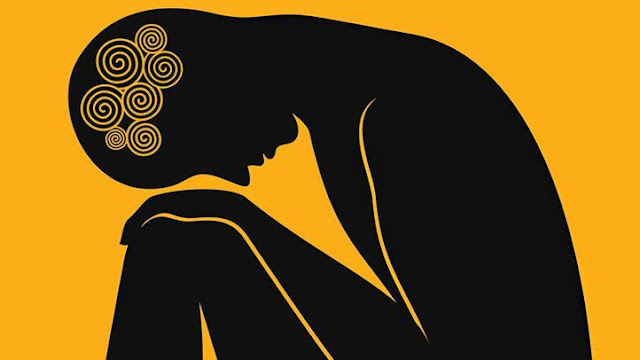Anxiety is a mental health problem wherein a person suffers from excessive worry or emotional numbness. Here a few tips to combat that :
1. Remain in your time region.
Nervousness is a future-situated perspective. So as opposed to agonizing over what will occur, "reel yourself back to the present," says Tamar Chansky, Ph.D., an analyst and creator of Freeing Yourself from Anxiety. Ask yourself: What's occurring at this moment? Am I safe? Is there something I have to do at the present time? If not, make an "arrangement" to check in with yourself later in the day to return to your concerns so those inaccessible situations don't lose you track, she says.
2. Relabel what's going on.
Fits of anxiety can regularly cause you to feel like you're biting the dust or having a coronary episode. Remind yourself: "I'm having a fit of anxiety, however it's innocuous, it's impermanent, and there's nothing I have to do," Chansky says. Also, remember it truly is something contrary to an indication of approaching passing - your body is actuating its battle or-flight reaction, the framework that is going to keep you alive, she says.
3. Actuality check your musings.
Individuals with tension regularly focus on most pessimistic scenario situations, Chansky says. To battle these concerns, consider how sensible they are. Let's assume you're apprehensive about a major introduction at work. Instead of believe, "I'm going to bomb," for instance, say, "I'm apprehensive, yet I'm readied. A few things will work out in a good way, and some may not," she recommends. Getting into an example of reexamining your feelings of dread causes train your cerebrum to think of an objective method to manage your restless musings.
4. Take in and out.
Profound breathing causes you quiet down. While you may have caught wind of explicit breathing activities, you don't have to stress over tallying out a specific number of breaths, Chansky says. Rather simply center around uniformly breathing in and breathing out. This will help delayed down and re-focus your psyche, she says.
5. Keep the 3-3-3 principle.
Check out you and name three things you see. At that point, name three sounds you hear. At long last, move three pieces of your body - your lower leg, fingers, or arm. At whatever point you feel your cerebrum going 100 miles for each hour, this psychological stunt can help focus your brain, taking you back to the current second, Chansky says.
6. Simply accomplish something.
Stand up, go for a stroll, discard a bit of refuse from your work area - any activity that intrudes on your line of reasoning causes you recover a feeling of control, Chansky proposes.
7. Stand upright.
"At the point when we are restless, we ensure our chest area - where our heart and lungs are found - by slouching over," Chansky says. For a prompt physical counteractant to this normal response, pull your shoulders back, stand or sit with your feet separated, and open your chest. This encourages your body begin to detect that it's back in charge, she says.
8. Avoid sugar.
It might be enticing to go after something sweet when you're focused, yet that chocolate bar can accomplish more mischief than anything, as examination shows that eating an excess of sugar can exacerbate on edge emotions. Rather than venturing into the treats bowl, drink a glass of water or eat protein, Chansky says, which will give a moderate vitality your body can use to recoup.
9. Request a subsequent sentiment.
Call or text a companion or relative and go through your concerns with them, Chansky says. "Saying them so anyone might hear to another person can assist you with perceiving the truth about them plainly." It can likewise assist with composing your feelings of dread on paper.
10. Watch a clever video.
This last strategy might be the least demanding one yet: Cue up clasps of your preferred jokester or clever TV show. Chuckling is a decent remedy for a restless psyche, Chansky says. Examination shows that chuckling has heaps of advantages for our emotional well-being and prosperity; one investigation found that humor could help lower tension as much as (or significantly beyond what) exercise can,




